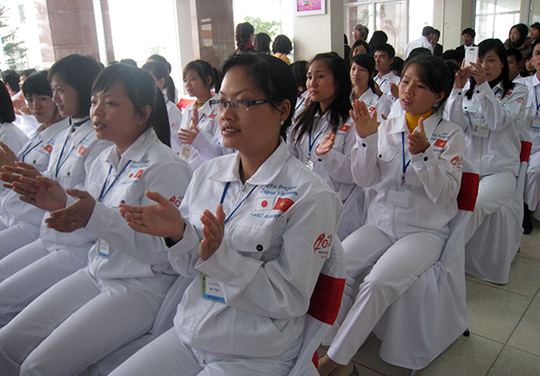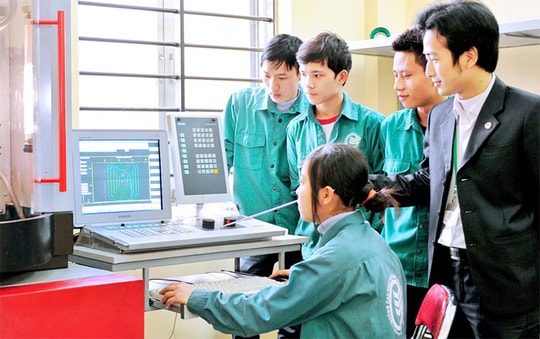Standards for going to Japan to work as a special skilled worker
The salary of foreign workers is at least equal to that of Japanese workers in the same position and is clearly stated in the contract signed with that worker.
- On December 8, 2018, the Japanese National Assembly passed the revised Immigration Control Law, which includes provisions on a new residence status of "special skills". It is expected that after the above Draft Law is passed, there will be specific information on the new reception mechanism around January 2019 and aiming to start implementation from April 2019.

As "special skills number 2", workers can stay and work long-term and sponsor their families to come live and work in Japan. - Regarding the mechanism for accepting foreign human resources with the status of "special skills", the Japanese National Assembly is currently considering the following direction:
Those who have the necessary knowledge, skills and experience to meet the job requirements are called "special skills No. 1"; those who have passed the exam and are determined to be highly specialized and able to meet the job requirements of more skilled skills are granted the status of "special skills No. 2". As "special skills No. 1", the working period is limited to 5 years and family sponsorship is not allowed. However, as "special skills No. 2", workers can stay and work long-term and sponsor their family to live and work in Japan.
- Reception field:Currently considering the following 14 industries: construction, shipbuilding/marine industry, agriculture, nursing, accommodation, food/beverage production, restaurants, fisheries, building cleaning, blacksmithing, electrical/electronics/information industry, automobile maintenance/repair and aviation.
 |
| The salary of foreign workers is at least equal to that of Japanese workers in the same position and is clearly stated in the contract signed with that worker. |
- Recipients:
+ 18 years of age or older;
+ Skill standards: have the necessary knowledge and experience to be able to work immediately in the receiving field, confirmed by an exam prescribed by the Ministry in charge;
+ Japanese language proficiency standards: able to communicate normally, basically have enough Japanese language ability for daily activities, confirmed by an exam to assess the necessary ability for each field of reception.
- Conduct Japanese language skills and proficiency assessment tests:The subjects conducting the examination are the industry organizations of the receiving field and the Japan Foundation (for the Japanese language examination). However, it is currently under consideration to decide whether the examination to assess the Japanese language skills and abilities of workers in each receiving field will be conducted in Japan or the sending country.
-Salary:The salary of foreign workers is at least equal to that of Japanese workers in the same position and is clearly stated in the contract signed with that worker.
-Change of job:Allows job transfer within the mentioned field when completing immigration procedures and registering for residence status (however, it is necessary to report and complete necessary procedures when changing jobs)
-Receiving unit standards:In addition to regulations on compliance with the law on labor relations, social insurance and foreign worker support mechanisms, receiving agencies need to meet certain standards to ensure that there are not too many workers running away, not receiving foreign workers with special skills through the introduction of dispatching companies or brokerage companies that have collected or intend to collect deposits from foreign workers with special skills themselves or from their relatives in order to eliminate unethical brokerage companies.

